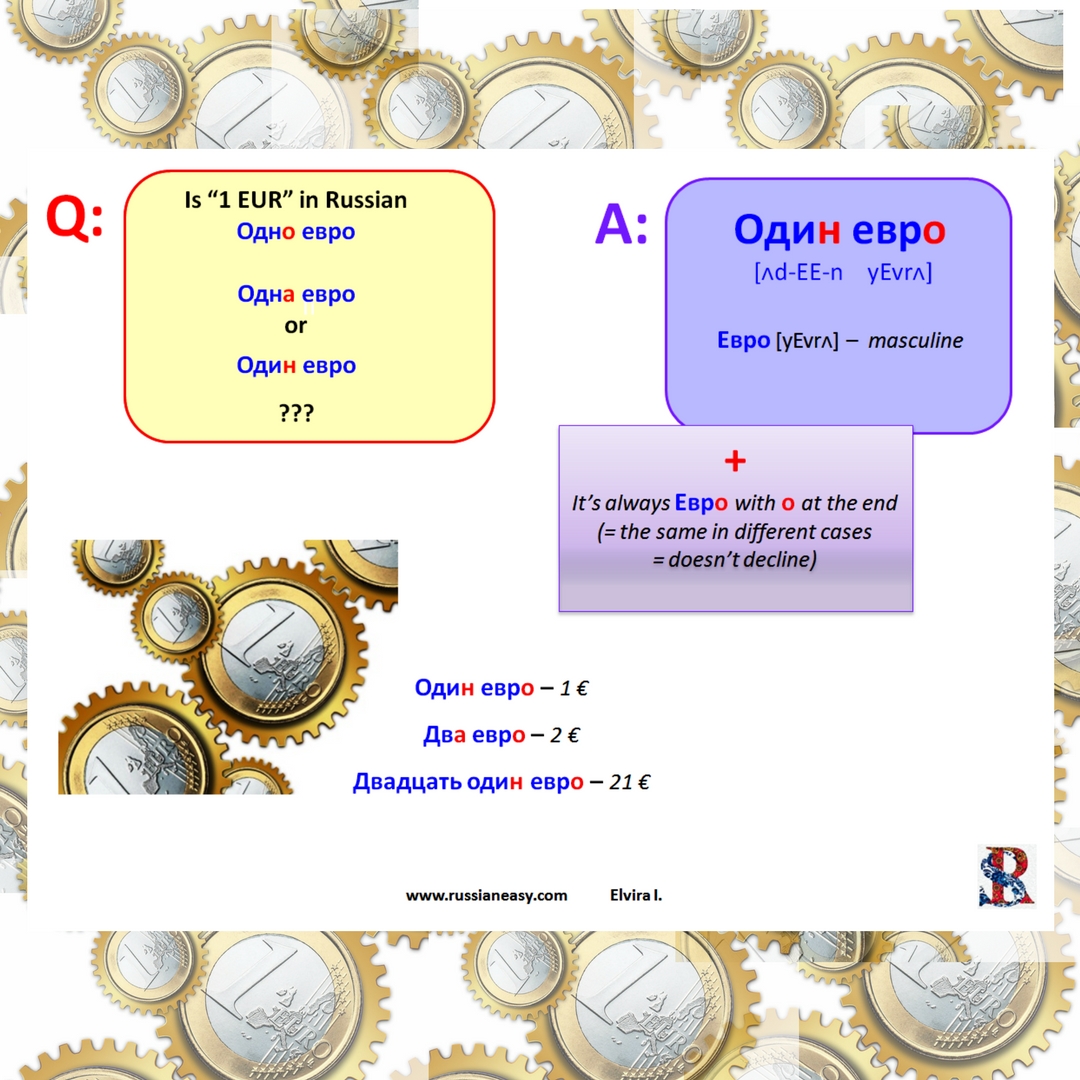For example, the words Кино [k-ee-nO] - cinema, Пальто [pᴧl'tO] - a coat, Окно [ᴧknO] - a window end in -O and are the nouns of neuter gender.
You might hear that somebody saying - Одно евро - following the general rule: if a noun ends in -o it's a neuter noun.
There are even examples of using евро as a feminine noun: Одна евро - the argument being that евро is валюта [vᴧl-OO-tᴧ] - currency, therefore should be feminine because the word валюта [vᴧl-OO-tᴧ] is feminine.
Both examples are wrong - Евро
is a masculine noun and follows the same rules as Рубль
[r-oo-bl'] - rouble
or Доллар
[dOlᴧr] - dollar.
Один
рубль [ᴧd-EE-n r-oo-bl']
- 1
rouble
Один доллар [ᴧd-EE-n dolᴧr] - 1 dollar
Один евро [ᴧd-EE-n yEvrᴧ] - 1 euro
However unlike Рубль [r-oo-bl'] - rouble or Доллар [dOlᴧr] - dollar, Евро doesn't decline, it doesn't change in different cases, that actually makes it much easier to use, you don't need to think what ending to use say in the Accusative Case Plural.
|
Singular Nominitive case |
Оди́н
рубль - 1 rouble |
Оди́н
доллар –
1 $ |
Оди́н
е́вро – 1 EUR |
|
Plural Nominative
case |
Два
рубля́ - 2 roubles [dvA r-oo-blyA] |
Три
до́ллара – 3 $ [tr-ee- dOlᴧrᴧ] |
Четы́ре
е́вро – 4 EUR [ch-ee-tir-ee
yEvrᴧ] |
|
Plural Genitive
case |
Двух
рубле́й [dv-oo-h
r-oo-blEy] |
Трёх
до́лларов [tryOh dOlᴧrᴧv] |
Четырёх
е́вро [ch-ee-tiryOh
yEvrᴧ] |
|
Plural Dative
case |
Дву́м
рубля́м [dv-oo-m
r-oo-blyAm] |
Трём
до́лларам [tryOm dOlᴧrᴧm] |
Четырём
е́вро [ch-ee-tiryOm
yEvrᴧ] |






